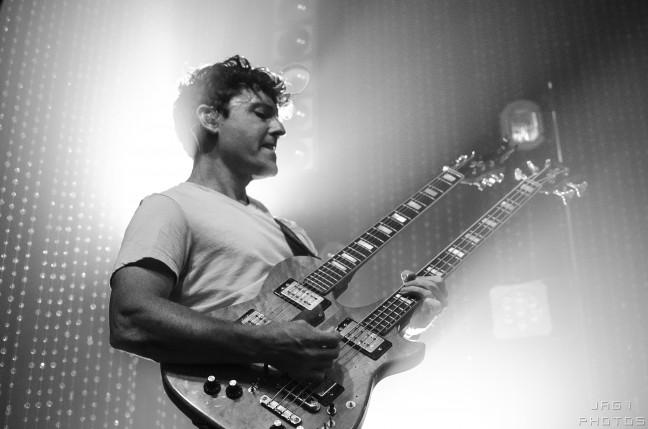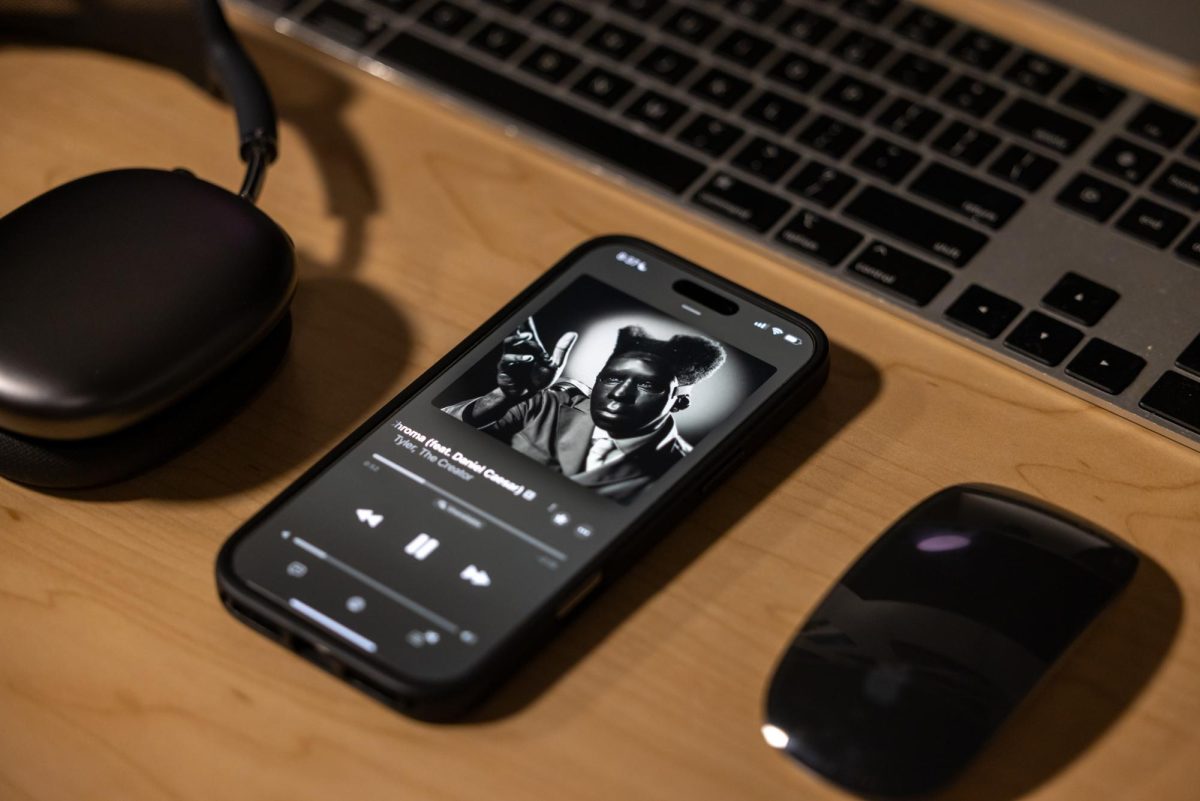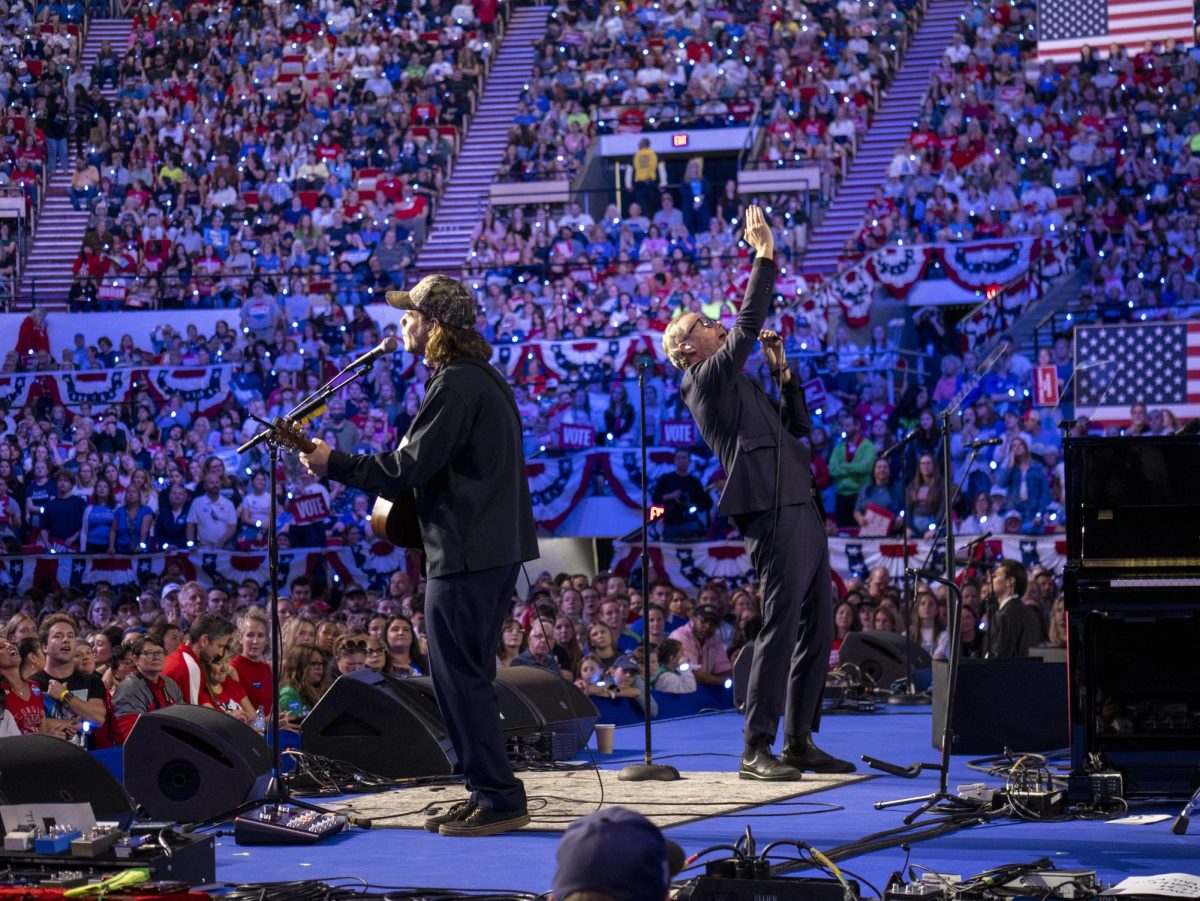Madison won’t have to wait until late March to see a pair of superheroes team up to take on the world. They’ll be able to see it much sooner — Feb. 18, to be exact.
While they aren’t exactly Batman and Superman, Kristian Dunn of the band El Ten Eleven said that is the favorite way to describe the live show he and bandmate Tim Fogarty put on.
El Ten Eleven fits the broad categorization of a post-rock band, matching that description in the sense they are instrumental and use guitars in new and interesting ways. During live shows, the band heavily utilizes live looping, both with guitar and drums.
Fogarty, the drummer, uses both acoustic and electronic drum sets while Dunn plays a double neck guitar, which is a combination of a six-string guitar and a bass. This is quite the endeavor, but El Ten Eleven doesn’t back away from a challenge. In fact, Dunn described their live show as “two guys making the music of five guys without the aid of a laptop or anything prerecorded.”
According to Dunn, the impetus for keeping the band at two members rather than expanding to include more members lies in his “control freak” tendencies — that and his desire “to be a dictator, so to speak.”
Despite this, Dunn hinted he would soon be ceding some creative control. He said El Ten Eleven was currently working on some tracks with outside vocalists, and the vocals would be traditional rock, sing-along vocals rather than anything too experimental.
Though they have been a band for nearly 15 years, El Ten Eleven has remained relatively under the radar. Despite making complex, interesting music, the band has no entries on Pitchfork and yield no results on Metacritic. Dunn doesn’t seem to understand the lack of recognition.
“I wish it was [explainable],” Dunn said. “We’ve been trying to figure it out and our agents have been trying to figure it out. It seems like all I can do is scratch my head and chalk it up to [lack of] luck.”
That isn’t to say the band isn’t happy with where they are. El Ten Eleven embraces their hard work on the road. Recently, they’ve witnessed high volume ticket sales for smaller theaters.
For one who hasn’t been to an El Ten Eleven show, Dunn insinuates it would be indistinguishable from a Mensa conference.
“I think our audience is smart,” Dunn said. “I think the average IQ for an El Ten Eleven show is higher than that of other bands. Every now and then, we go to other shows and we think, ‘Wow, there are a lot of dumbasses here.’ I think we draw [in] smart people, and I’ll admit I’m a little proud of that.”
For certain audiences, a disconcerting part of some shows is the presence of a backing track, which dulls the experience and essence of a live show. The case is different for El Ten Eleven — they are fiercely dedicated to putting on a fully live concert.
Dunn said what some bands do is “essentially lip-syncing,” and after watching a recorded performance of an offending group, he thought it was rough — particularly if it’s just “two dudes jumping around [and] pretending they’re playing at a cool light show.”
“We have fans that are really passionate, and I think that’s because we play it all live,” Dunn said. “We both agreed if we went [to a show] and saw two people making good music that was technically impressive because it was looped live, it would blow us away. So we said, ‘All right, let’s do that. Let’s try.'”














